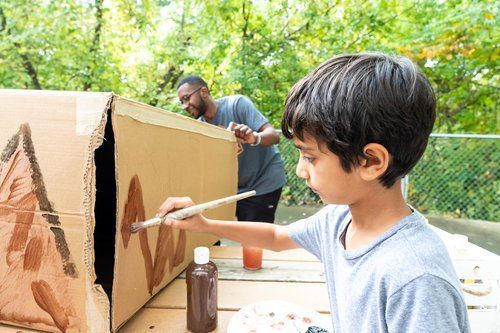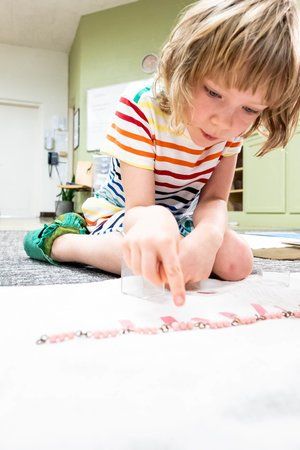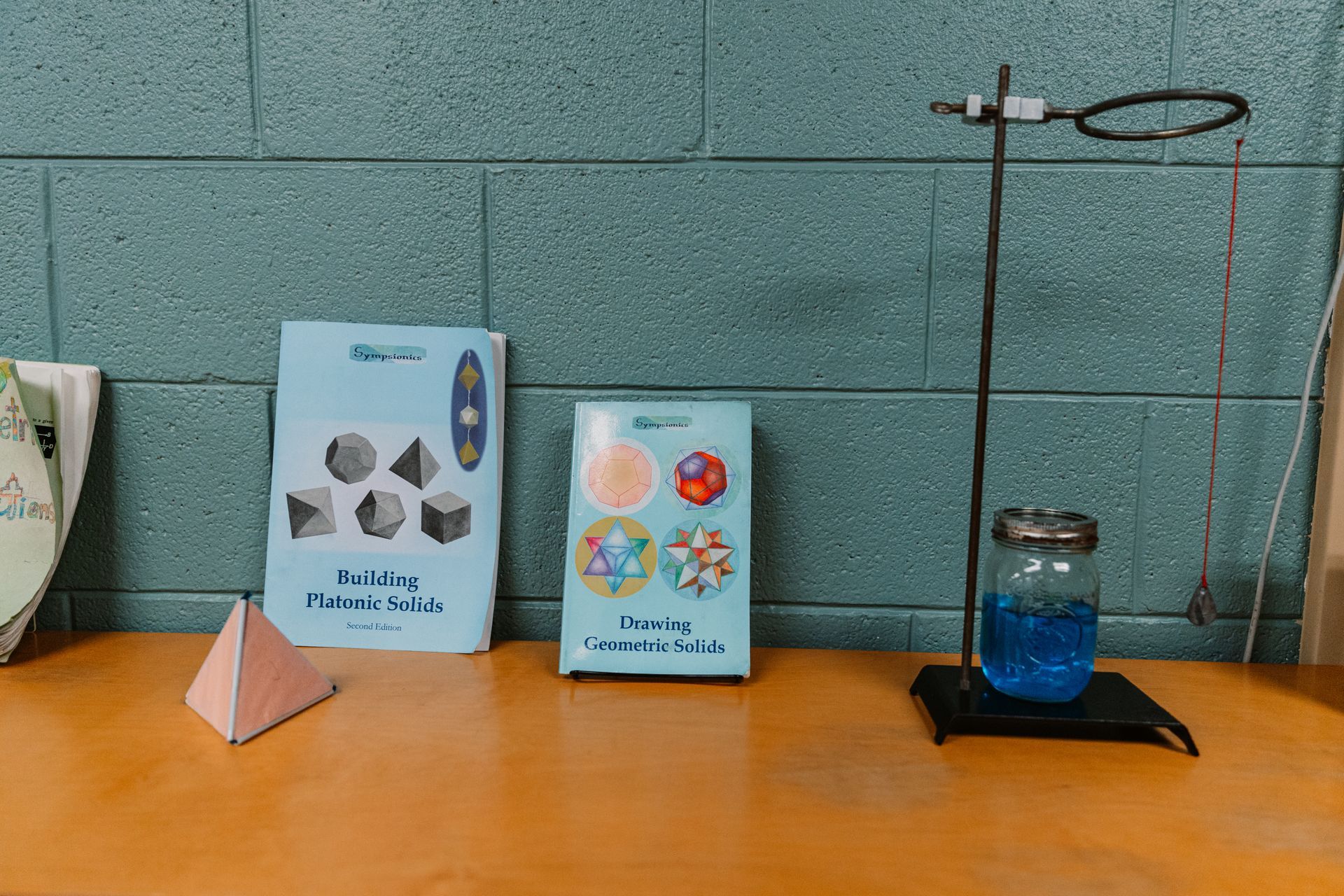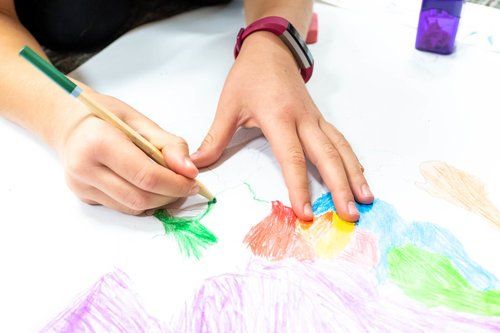Elementary
6-12 years
“The first essential for the child’s development is concentration. The child who concentrates is immensely happy.”
— Maria Montessori
What to expect from your student
Elementary classrooms are communities where students are afforded time to resolve peer-conflict and learn to participate meaningfully in a group setting. Students share responsibility for the upkeep of classrooms, care of animals and plants, and accountability to one another.
Our teachers, known as “guides”, offer lessons to students as well as follow-up work. As a student grows and matures, they may choose follow-up work from several choices or even design their own follow-up work. Because they are able to design their own work, Stepping Stones students become very self-aware, understanding their own strengths and leveraging them for success. Whether a student favors three-dimensional work, intricate mathematical graphs, or creative story-telling, each student’s unique learning shines through their work as they master traditional academics.
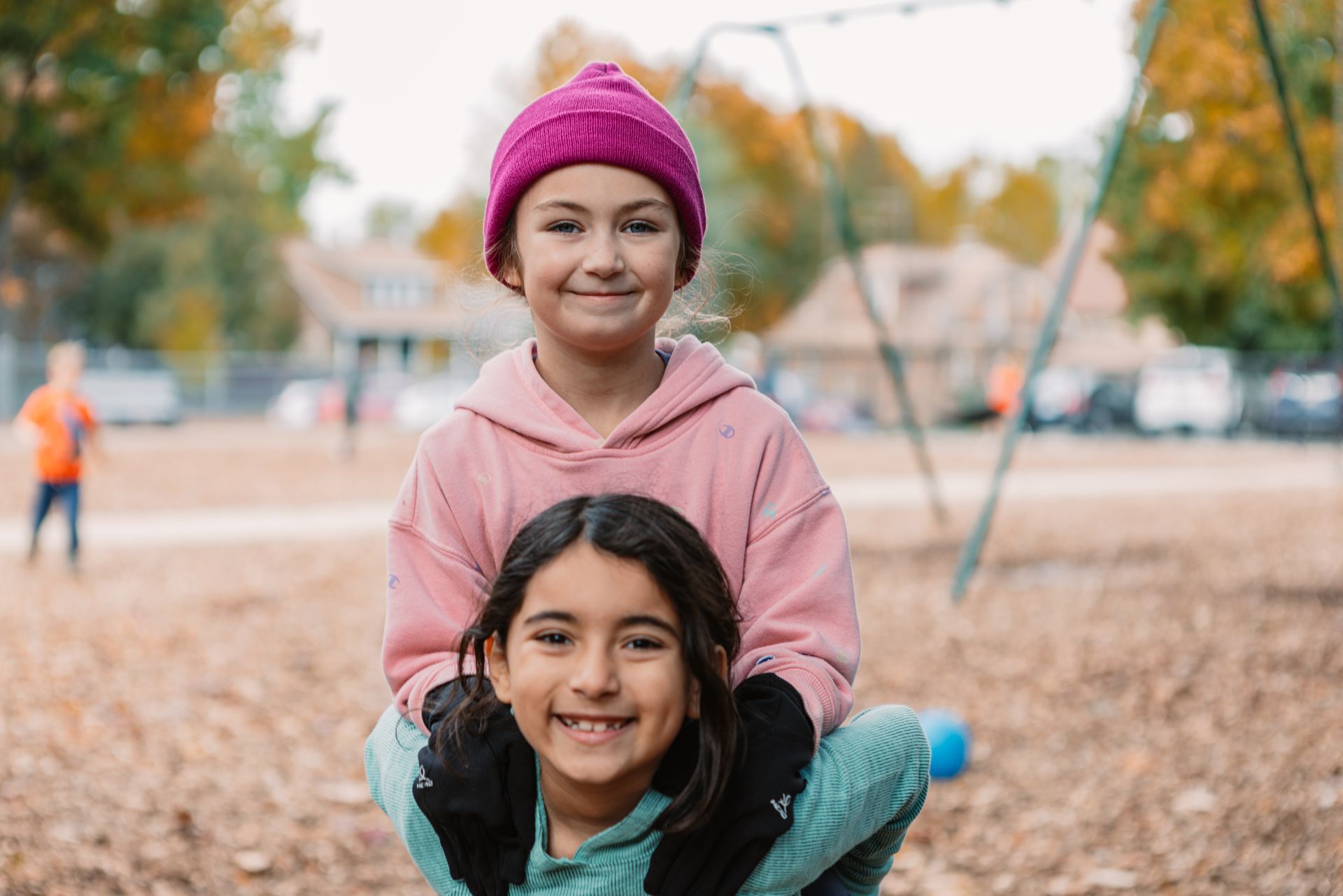
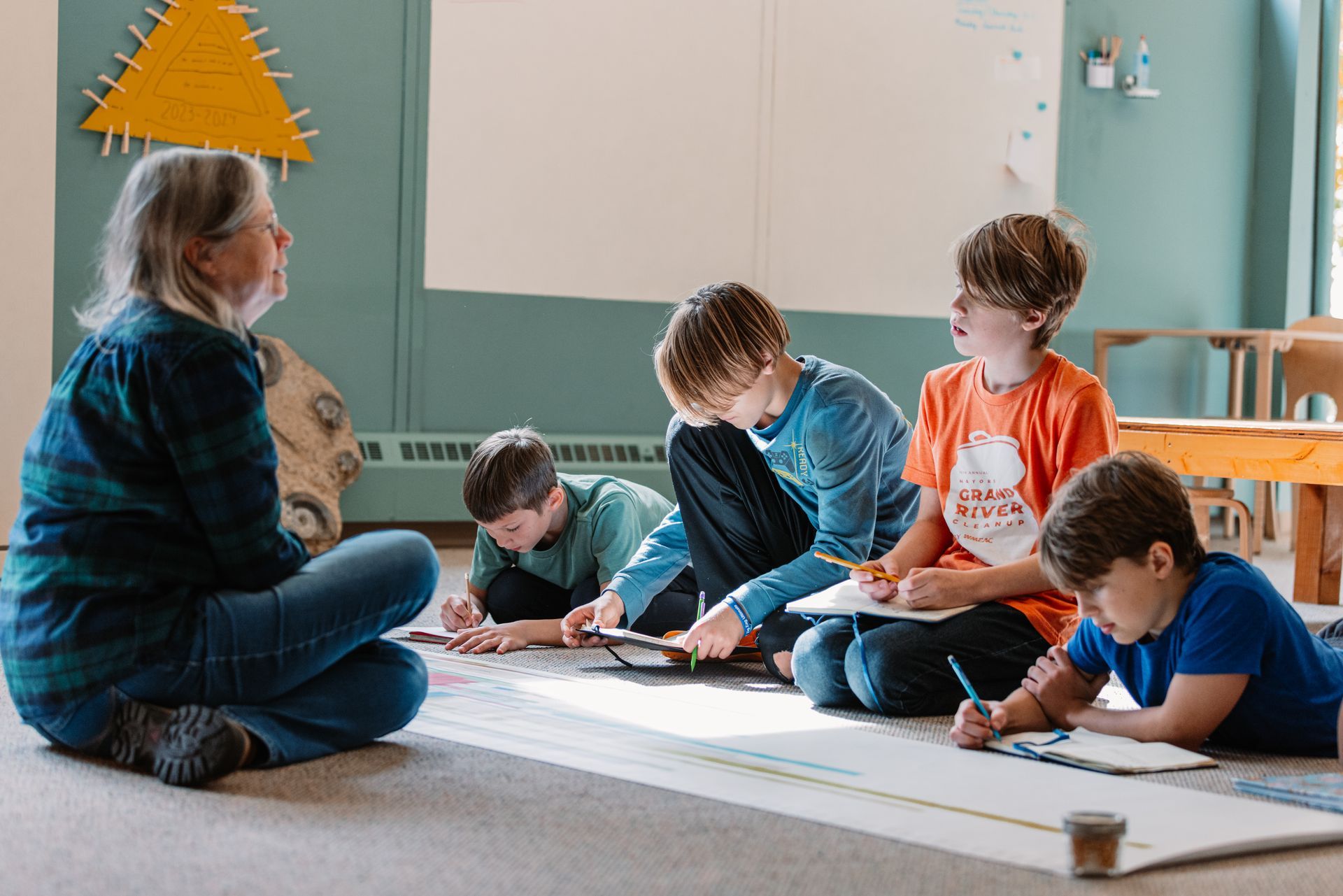
In the classroom
Our students have the advantage of working in the same classroom for three full years, with the same teacher and peer group. In an environment of continuity, this unique feature of the Montessori curriculum promotes creativity, builds self-esteem, and allows the development of leadership skills as the older children naturally become mentors for their younger classmates. With a heightened sense of curiosity, a well-developed ability to solve problems, and a greater sensitivity to the environment, the child begins, in earnest, to learn the traditional disciplines of mathematics, literature, and science.
In order to allow students the opportunity to take advantage of their extended ability to concentrate as well as their curiosity, our classrooms carefully protect three-hour work cycles, avoiding interruptions, bells, or large group transitions. Instead, students can flow between their own academic work projects, learning to balance friendships and social needs as they do so. Older students plan and prepare for “going outs”, where they go out into the community to learn about topics they are researching. Once they reach the limits of classroom resources, these trips are opportunities for students to interact with experts in our community—developing stronger research skills, planning skills, and collaborative learning skills. Past going outs have included interviews with business professionals, university professors, librarians, museum curators, artists, and hobbyists.
More about Elementary
Between the ages of 6 and 12, children experience the Second Plane of Development. At this age, children become much more social. They are passionate about justice and fairness, and they begin to utilize their imagination to expand their knowledge into what could be in addition to what is.
As with our Children’s House, classrooms in Elementary are designed for three-year groupings, with Lower Elementary classrooms designed for children between the ages of 6 and 9 and Upper Elementary classrooms designed for children between ages 9 and 12.
It is at this stage, too, that the child begins to expand his cultural boundaries through active participation in the areas of art, music, creative dramatics, and foreign languages. In these years, the child becomes accustomed to success and simply treats the obstacles that he encounters as new challenges to overcome.
Learning without limits
Your child will study both broadly and deeply, covering many subjects not attempted in conventional schools. Because there is not a rigid schedule or prescribed curriculum that the whole class must follow, your child can focus intensely on her self-chosen work, with minimal interruption. At the same time, she will collaborate with the teacher to ensure that her work is challenging and purposeful – and that basic standards are met. In that way, the teacher is in charge of the minimum scope of work – your child is in charge of the maximum.
The teacher is an “enlightened generalist”
To quote Bruce Lee: “A teacher is never a giver of ‘truth;’ he is a guide, a pointer to the truth that the student must discover for himself.” We couldn’t agree more. Our credentialed Montessori teachers have a broad knowledge of all subject areas – more than enough to help your child discover interests in any area imaginable and challenge her to deepen the field of study through research. In addition to offering lessons in Art and Music within the classroom, we supplement our students' weekly experiences with specialists guides who visit for more exploration in French, Music, and Art.
Engagement is essential
Real learning occurs when children are engaged – not when the teacher makes a blanket assignment. Curiosity is championed in our Elementary, and your child is encouraged to explore concepts to a level of detail only limited by his imagination.
Beyond the classroom
We want the children to be comfortable navigating the world, not just our classroom. So, we have a few excellent books, but not everything there is to read about a topic. As a result, the children must ‘go out’ beyond the limits of the classroom to find the information or resource that they need. A ‘Going Out’ is a planned undertaking by a small group of children. They find a resource in the community, schedule the outing, arrange for their own transportation and supervision (by staff or parent volunteers), prepare themselves for the experience and conduct themselves with dignity while out in public.
The format mirrors your child’s developmental needs
Your elementary age child has a strong drive for social connection. She is starting to develop deeper friendships and a connection to the community around her. Why then, would we want her to learn in rows of desks, confined to a chair, while the teacher lectures the class as a group? Instead, we embrace your child’s natural need for social exploration by giving lessons in small groups and encouraging children to work with a variety of others on follow up projects and research into subjects of intense interest.
Learning in context for deeper understanding
Unlike in a conventional program with a separate time of the day for each subject, your child will gain a much deeper understanding of concepts by learning in context. The starting point for all courses of study is the “Great Lessons;” these impressionistic and scientific stories give your child the “big picture” of astronomy, earth science, geography, physics, biology, history, anthropology, cultural and social studies, language, math, music and art. Meaningful learning happens when children understand the “why” as much as the “what” – and are inspired to learn even more on their own.
Developing flexibility, resilience and grit
We believe children learn to be adaptable by supporting them to solve their own problems, rather than solving problems for them. With the help of a supportive adult, your child can, most often, find the solution that is best for him.
Learning as its own reward
We have high expectations for your child, and believe that rewards and punishments appeal to the lowest levels of his intellect. Given a sticker, he will do his best for a few minutes. Given experiences that help him to believe in himself and his abilities, he will do his very best for a lifetime.
Prepared and confident
The ultimate goal of the elementary program is to develop the students’ abilities and self confidence so that they are able to take charge of their own learning. Students who have gained an appreciation for the enormous scale and resources of the world through the elementary curriculum are ready to explore their place within that world through our Middle School program.
“Stepping Stones has become a home away from home for our family. I
feel so good about dropping my two kids off at school; I know that the
teachers and staff will care for them almost as much as I do! To me,
that is the most crucial element for a school - being surrounded by
caring people that create a feeling of safety. But Stepping Stones
also fosters their kindness and creativity in ways that impress me
each week. Whether it is learning from or teaching kids at different
ages in their class, or just being able to work in a free space
(versus at a desk), Stepping Stones is unique. Especially during
Covid, the school has really become my community – they are in it with
the families.”
Alisha D.
“I like that we have an opportunity to let out our creativity and really go full steam."
Upper Elementary Student, age 10
“Being in a Montessori classroom has shown me just how resilient, curious, and eager children are when given a space to make mistakes, help others, and discover they are thinkers, readers, and writers. When our classroom has melded into a mini community, we can celebrate all the 'aha' moments together. It is fulfilling to observe students become confident learners and know their own strengths and weaknesses."


